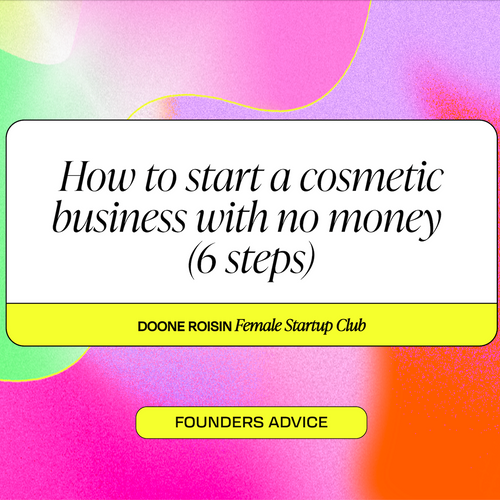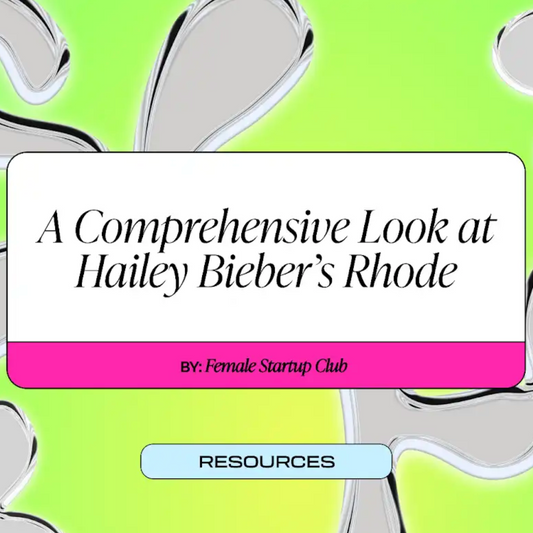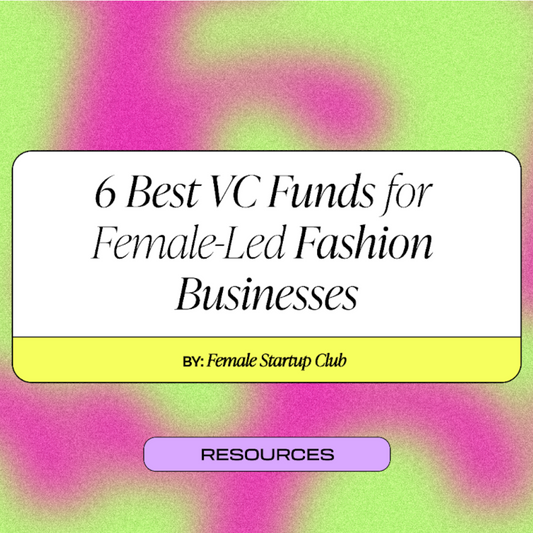Joining me on the show today is Sophie Bakalar, co-founder of FABLE.
FABLE is a direct-to-consumer product innovation studio that solves real problems for pets and their humans through thoughtful, functional designs. The brand leverages the latest research in pet wellness, designing the most convenient, versatile, secure, and durable gear to help you appreciate every moment with your pet –inside and outside the home.
In this episode we’re chatting through lessons learned after spending time working in VC, what to do and what not to do when you’re pitching your startup idea, how she built a 5,000 person waiting list through thoughtful design and why you shouldn’t keep your idea a secret.
Ever wondered how to get thousands of potential customers eagerly waiting for your product launch? Sophie Bakalar, co-founder of FABLE, knows a thing or two about it. FABLE is not just another pet brand; it’s an innovation lab for pets and their humans, crafting thoughtfully designed products that solve real pain points. Here’s how Sophie took FABLE from an idea to a buzzworthy brand with a 5,000-person waitlist, and why sharing your startup dream might be the key to making it happen.
Start Small, Think Big
Building FABLE was about solving pet-related problems with smarter, better-designed products. But Sophie didn’t just come up with the idea and throw it out there. She took her time, testing initial product batches and collecting feedback to fine-tune everything. The initial versions looked quite different from what you’d see on their website today. That’s because she let customers play a part in shaping the final products.
And if you’re in the early stages of your startup, her advice is simple: don’t overthink it! Get a basic website up with a cover page where people can sign up for your email list. You don’t need a fancy setup to start. It’s more important to see if your idea resonates with people. If you can’t get someone to sign up for a mailing list, it’s going to be even harder to convince them to buy your product later. Use this as a litmus test to understand whether you're solving a real problem.
Why You Shouldn’t Keep Your Idea a Secret
There’s a weird fear that people will steal your idea if you talk about it too soon. Sophie’s take? Relax. “It’s so much harder to build a business than it is to have an idea,” she says. Sharing your concept with others doesn’t mean it’s going to get snatched up and turned into a competing product overnight. In fact, the feedback you get early on is invaluable and can help you avoid costly mistakes down the road.
Getting out there and talking about your project can also open doors you didn’t even know existed. People are more willing to help than you might think, so take them up on their offers. Even if they don’t come through, you haven’t lost anything.
Create Buzz Before Launching
How did FABLE get a 5,000-person waitlist? It wasn’t just luck. Sophie and her team used social media to get the word out, leveraging user-generated content to build excitement. Pet owners love sharing pictures and stories about their furry friends, so FABLE made the most of this by encouraging customers to tag them and share their experiences.
Press coverage also helped get the ball rolling. Some of it was luck, but a lot of it came from hustle—messaging journalists, reaching out to bloggers, and making connections in the industry. You never know who might be interested in your story, so don’t be afraid to shoot your shot.
One of FABLE's pivotal moments came during the launch of their signature crate, which doubles as a sleek side table and provides a den-like, anxiety-reducing environment for pets. The demand was organic, coming from people who had seen the smaller version and wanted something similar for their larger pets. That 5,000-person waitlist wasn’t driven by traditional marketing—it was all word of mouth!
Building a Business is Harder Than Having an Idea
While it’s tempting to keep your startup idea under wraps, you’re missing out on valuable insights and support if you do. Sophie stresses the importance of embracing feedback and being open to advice. “It’s so hard for someone to steal your idea and make it into a business,” she says. The real challenge is in the execution. By talking to others, you can identify potential pitfalls and improve your concept before you’re too far down the road.
The Power of Lifetime Value (LTV)
To avoid becoming a one-hit-wonder, Sophie explains that startups need to focus on lifetime value (LTV). It’s not just about acquiring customers; it’s about keeping them engaged and coming back for more. You want customers who don’t just make a one-time purchase but who return for new products and stay loyal to your brand.
Creating a seamless brand experience that keeps customers coming back is crucial. Offer new products, engage with your audience through content, and collect as much data as you can to understand what they want. Everything from social media comments to return requests can offer valuable insights into how you can improve and what products you should launch next.
Iterate and Evolve
The first version of FABLE's products was not set in stone. Sophie and her team took a phased approach, launching slowly and waiting for customer feedback before committing to larger production runs. They listened to what people had to say and used that information to make changes. Today, their product line is much different from the original offerings, thanks to this data-driven approach.
Remember, nothing has to be perfect before you start. The goal is to launch something that solves a problem and then fine-tune it as you go. And the best way to do that is by listening to your customers.
Key Takeaways for Aspiring Entrepreneurs
- Don’t wait for perfect: Get something out there, collect feedback, and iterate. Your first version doesn’t have to be your final version.
- Be shameless about asking for help: People are often more willing to assist than you’d expect. Don’t be afraid to push for what you need.
- Leverage user-generated content: Let your customers help you build buzz around your product.
- Start simple: Even a basic website with an email sign-up can be a great starting point.
- Don’t be afraid to share your idea: The real challenge is in execution, not in coming up with the idea itself.
Building a 5,000-person waitlist isn’t an overnight success—it’s a process of connecting, testing, iterating, and scaling. And as Sophie’s journey with FABLE shows, being open, collecting data, and letting your audience shape your brand can make all the difference. So, get out there and start talking about your idea—you never know what doors it might open!



